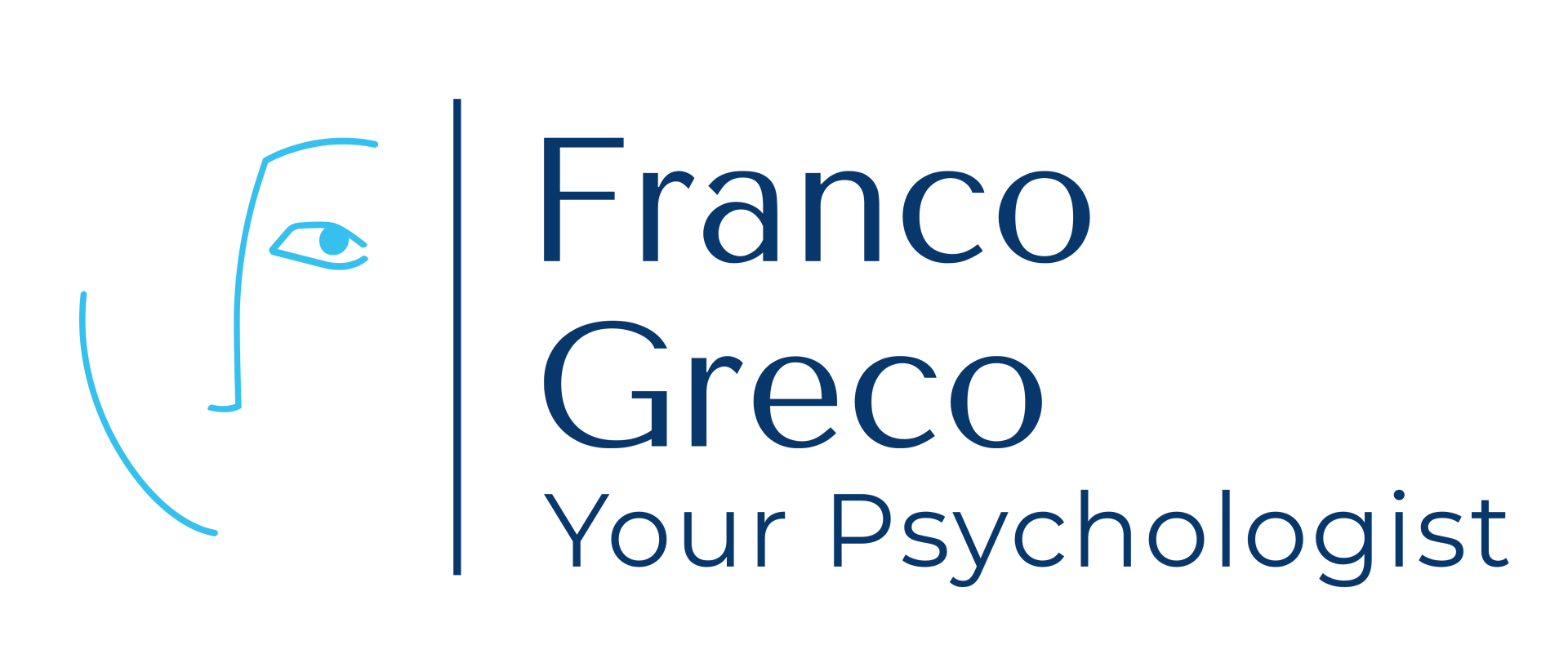BLOG POST

Treated by Franco Greco – Internationally Accredited Schema Therapist & Clinical and Counselling Psychologist, Your Psychologist Elsternwick “Schema Therapy case study of a high-functioning male executive struggling with alcohol dependence, treated by Franco Greco, Internationally Accredited Schema Therapist and Clinical and Counselling Psychologist. This case explores the emotional roots of self-soothing behavior, schema modes, and the therapy process guiding long-term recovery.” Client Profile Name : James M. (pseudonym) Age : 45 Gender : Male Occupation : Senior Financial Consultant Marital Status : Married, father of two young children Presenting Problem : Chronic alcohol use, emotional avoidance, marital strain, parental disconnection, and workplace underperformance Therapist : Franco Greco, Internationally Accredited Schema Therapist & Clinical and Counselling Psychologist, Your Psychologist – Elsternwick, Victoria Presenting Issues James is a seasoned financial consultant who presented to therapy during a period of significant personal and professional distress. Despite career success, he found himself emotionally disconnected at home, frequently drinking to numb stress and inner tension. His wife voiced concern about his distance and drinking, and he feared losing touch with his young children. He described feeling like he was “on autopilot” most evenings—drinking alone, zoning out, and withdrawing emotionally. Previous attempts to moderate his drinking failed, leaving him stuck in a cycle of avoidance, shame, and frustration. Therapeutic Approach: Schema Therapy with Franco Greco Franco Greco approached James’s treatment through the lens of Schema Therapy—a model particularly effective for chronic patterns rooted in early emotional experiences. As an Internationally Accredited Schema Therapist and Clinical and Counselling Psychologist , Franco brings a depth of training and experience critical for working with complex emotional presentations, especially where addiction and avoidance are entwined with long-standing schemas. His dual background allows him to integrate evidence-based techniques (CBT, mindfulness, attachment work) with a nuanced understanding of personality development, trauma, and behavioral change. This was especially important in James’s case, where emotional numbing, shame, and self-soothing were deeply ingrained. Early Maladaptive Schemas (EMS) Identified Franco and James identified several core schemas that made James vulnerable to alcohol misuse: Emotional Deprivation Schema Belief: “No one truly sees or supports my emotional needs.” Outcome: Self-soothing through alcohol, emotional disengagement, and avoidance of vulnerability Failure Schema Belief: “I don’t measure up—eventually I’ll disappoint everyone.” Outcome: Overcompensation at work, fear of being exposed, retreat at home Subjugation Schema Belief: “My needs don’t matter—I must not upset others.” Outcome: Suppressed feelings, hidden resentment, and passive coping Defectiveness / Shame Schema Belief: “There is something wrong with me.” Outcome: Self-critical thoughts, guilt after drinking, and low self-worth Schema Modes Identified Franco helped James map his emotional “modes” to understand how he shifted into different mental states when under stress: Detached Self-Soother Mode Function: Numbs emotional pain through substances or distractions Behavior: Drinking nightly to escape, binge-watching, avoiding responsibilities Detached Protector Mode Function: Avoids painful emotions by withdrawing Behavior: Emotional shutdown, limited interaction with family Compliant Surrender Mode Function: Keeps peace by suppressing personal needs Behavior: Overextends at work, avoids expressing frustration at home Punitive Parent Mode Function: Internalized harsh judgment Behavior: Shaming self-talk after drinking or perceived failure Vulnerable Child Mode Function: Holds unmet needs for love, security, and acceptance Behavior: Feelings of sadness, rejection, and loneliness—often hidden Healthy Adult Mode (Underdeveloped) Function: Grounded decision-making, emotional regulation, and self-care Goal: Strengthen this mode to manage discomfort without alcohol and repair relationships Therapeutic Goals Strengthen the Healthy Adult Mode to provide internal stability and make values-based decisions Interrupt Detached Self-Soothing by identifying emotional triggers and practicing alternative soothing methods Heal the Emotional Deprivation Schema using experiential techniques Reduce internal shame and perfectionism through mode dialogues and self-compassion work Rebuild emotional connection with his wife and children by cultivating vulnerability and presence Prevent relapse by replacing reactive drinking patterns with structured behavioral responses Key Schema Therapy Techniques Used Imagery Rescripting – Revisiting emotionally significant memories to repair unmet needs and provide inner nurturing through the Healthy Adult Chair Work – Engaging different parts of the self (e.g., Punitive Parent, Detached Soother, Vulnerable Child) to shift internal dynamics Mode Journaling – Identifying which mode was activated during drinking urges and what emotion preceded it Pattern-Breaking Assignments – Practicing evening rituals with family, sober social events, and setting emotional boundaries at work Outcome After Six Months of Schema Therapy By the six-month mark, James experienced: Significant reduction in alcohol use , with weeks of sustained sobriety and fewer relapses A greater sense of connection and enjoyment in his role as a father and husband A clearer ability to identify and tolerate emotional triggers A less punitive inner dialogue , with more supportive self-talk and internal balance Increased presence and vulnerability , resulting in deeper intimacy and communication at home James continues therapy with Franco to reinforce new patterns and deepen emotional resilience. Why These Credentials Matter: Franco Greco’s Unique Expertise As an Internationally Accredited Schema Therapist and registered Clinical and Counselling Psychologist , Franco Greco brings a rare blend of structured therapeutic skill and deep emotional insight. These qualifications are especially important when working with professionals like James, where surface-level success often masks unresolved emotional pain, early trauma, or deeply rooted maladaptive coping mechanisms. Schema Therapy requires specialized training to address not just what a person does, but why they feel compelled to repeat harmful patterns—like drinking, withdrawing, or self-sabotage. Franco’s training allows him to navigate these complex layers with precision, compassion, and evidence-based tools that lead to lasting change. About Franco Greco Franco Greco is a Clinical and Counselling Psychologist and Internationally Accredited Schema Therapist practicing at Your Psychologist in Elsternwick, Victoria. He is known for his warm, structured, and trauma-informed approach with professionals, executives, and individuals struggling with emotional avoidance, shame, addiction, and inner conflict. His work blends clinical expertise with human connection to help clients create meaningful and sustainable life change. To learn more or call to book a session with Franco, visit Your Psychologist Elsternwick.

Treated by Franco Greco – Accredited Schema Therapist, Your Psychologist Elsternwick "Schema Therapy case study of a male executive with chronic anger, treated by Franco Greco, Accredited Schema Therapist at Your Psychologist Elsternwick. Explore core schemas, modes, and therapy outcomes." Client Profile Name: David R. (pseudonym) Age: 40 Gender: Male Occupation: Senior Executive in a Technology Firm Presenting Problem: Chronic anger, emotional reactivity, workplace conflict, strained intimate relationships Therapist: Franco Greco, Accredited Schema Therapist, Your Psychologist – Elsternwick, Victoria Presenting Issues David is a high-performing executive who approached therapy after receiving feedback about his angry outbursts and intimidating communication style. Though highly competent and respected in his industry, he frequently finds himself overwhelmed by frustration, especially when colleagues underperform or when he perceives a lack of respect. He describes “boiling beneath the surface,” with emotional explosions followed by guilt and confusion. Despite his success, David reports a deep sense of dissatisfaction and emotional disconnection, particularly in his marriage and social life. Therapeutic Approach: Schema Therapy with Franco Greco Franco Greco , an Accredited Schema Therapist at Your Psychologist Elsternwick , uses a compassionate yet structured approach that combines cognitive, experiential, and behavioral techniques. His therapy style integrates: Mode-based schema work to address emotional patterns Imagery rescripting to heal early trauma and unmet emotional needs Chair dialogues to transform critical and reactive inner voices Pattern-breaking strategies to support lasting behavioral change Franco works collaboratively with clients to understand not just how they behave, but why they respond the way they do — especially under stress or emotional threat. Early Maladaptive Schemas (EMS) Identified in David Through assessment and mode work with Franco Greco, several core schemas were identified as driving David’s emotional dysregulation: Unrelenting Standards / Hypercriticalness Schema Belief: “I must always perform at the highest level, or I’m not good enough.” Outcome: Perfectionism, irritability, and harsh self-talk Mistrust / Abuse Schema Belief: “People will hurt or take advantage of me if I let my guard down.” Outcome: Suspicion, defensiveness, and hostile reactions under pressure Emotional Deprivation Schema Belief: “No one will truly meet my emotional needs.” Outcome: Suppressed vulnerability, emotional shutdown, and anger used as protection Defectiveness / Shame Schema Belief: “There is something deeply wrong with me.” Outcome: Inner shame masked by achievement and emotional distancing Schema Modes Identified Franco helped David map and understand the schema modes driving his reactivity: Angry Protector Mode Function: Shields David from feeling vulnerable or exposed Behavior: Explosive anger, verbal aggression, controlling tendencies Detached Protector Mode Function: Avoids emotional pain Behavior: Emotional numbing, overworking, withdrawing from intimacy Demanding Parent Mode Function: Internalized perfectionism and criticism Behavior: Harsh inner voice pushing him to “do better” and never be satisfied Vulnerable Child Mode Function: Holds unmet emotional needs and fears Behavior: Deep feelings of inadequacy, sadness, and rejection — often hidden Healthy Adult Mode (Underdeveloped) Function: Emotion regulation, balanced thinking, and compassion Goal: Strengthen this mode to bring balance and reduce schema-driven behavior Therapeutic Goals with Franco Greco Strengthen David’s Healthy Adult Mode to manage emotions and support self-validation Reduce Angry Protector responses by identifying and processing underlying schema triggers Increase emotional awareness and tolerance Heal early emotional wounds through imagery rescripting and mode work Break behavioral patterns that fuel anger, isolation, and emotional avoidance Key Schema Therapy Techniques Used by Franco Greco Imagery Rescripting – Revisiting childhood experiences of emotional neglect and introducing the Healthy Adult to meet unmet needs. Chair Work – Dialogues between David’s Angry Protector, Demanding Parent, and Vulnerable Child to externalize and shift rigid patterns. Mode Tracking & Journaling – Identifying real-life triggers and automatic responses, with ongoing reflection to reinforce insight. Pattern Breaking Assignments – Practicing assertive communication and emotional vulnerability in both personal and professional contexts. Outcome After Six Months of Schema Therapy Under Franco Greco’s guidance, David reported: Significant reduction in anger outbursts Improved relationships with team members and his partner Increased emotional self-awareness Ability to pause and reflect before reacting Emerging compassion for himself and greater tolerance for imperfection Though still challenged by perfectionism and vulnerability, David has developed a more grounded sense of self and a healthier, more flexible inner voice. About Franco Greco – Accredited Schema Therapist Franco Greco is a highly experienced Schema Therapist based at Your Psychologist in Elsternwick , Victoria. He specialises in working with professionals, executives, and individuals facing long-standing emotional patterns like anger, shame, anxiety, and self-criticism. His practice focuses on helping clients heal core schemas and build emotional resilience using evidence-based techniques rooted in Schema Therapy, CBT, and mindfulness. To learn more or book a session with Franco, visit Your Psychologist Elsternwick

When experiencing anxiety, the sympathetic nervous system, part of the autonomic nervous system, is activated, initiating the "fight-or-flight" response, which prepares the body for action. Sympathetic Nervous System Activity Connects To Your Anxiety The sympathetic nervous system (SNS) is one of two branches of the autonomic nervous system (ANS) , which controls involuntary bodily functions like heart rate, digestion, and respiratory rate. The SNS is specifically responsible for the body's "fight-or-flight" response , which is an evolutionary adaptation that prepares the body to deal with perceived threats or danger. Managing Overactive Sympathetic Nervous System Activity Managing an overactive sympathetic nervous system through activating the parasympathetic system through: Relaxation techniques such as deep breathing, meditation, yoga, and progressive muscle relaxation can help activate the parasympathetic nervous system , which is the body's "rest and digest" system. This counters the fight-or-flight response, helping you calm down and return to a more balanced state. Mindfulness practices and exercise can also help regulate the body's stress response over time. Reach out if you need help
Contact Information
0482 092 406
hello@yourpsychologist.net.au
hello@yourpsychologist.net.au
Consultation Hours
Wednesday: 9am - 6pm
REQUEST A CALL BACK
Thursday: 9am - 6pm
Friday: 9am - 6pm







